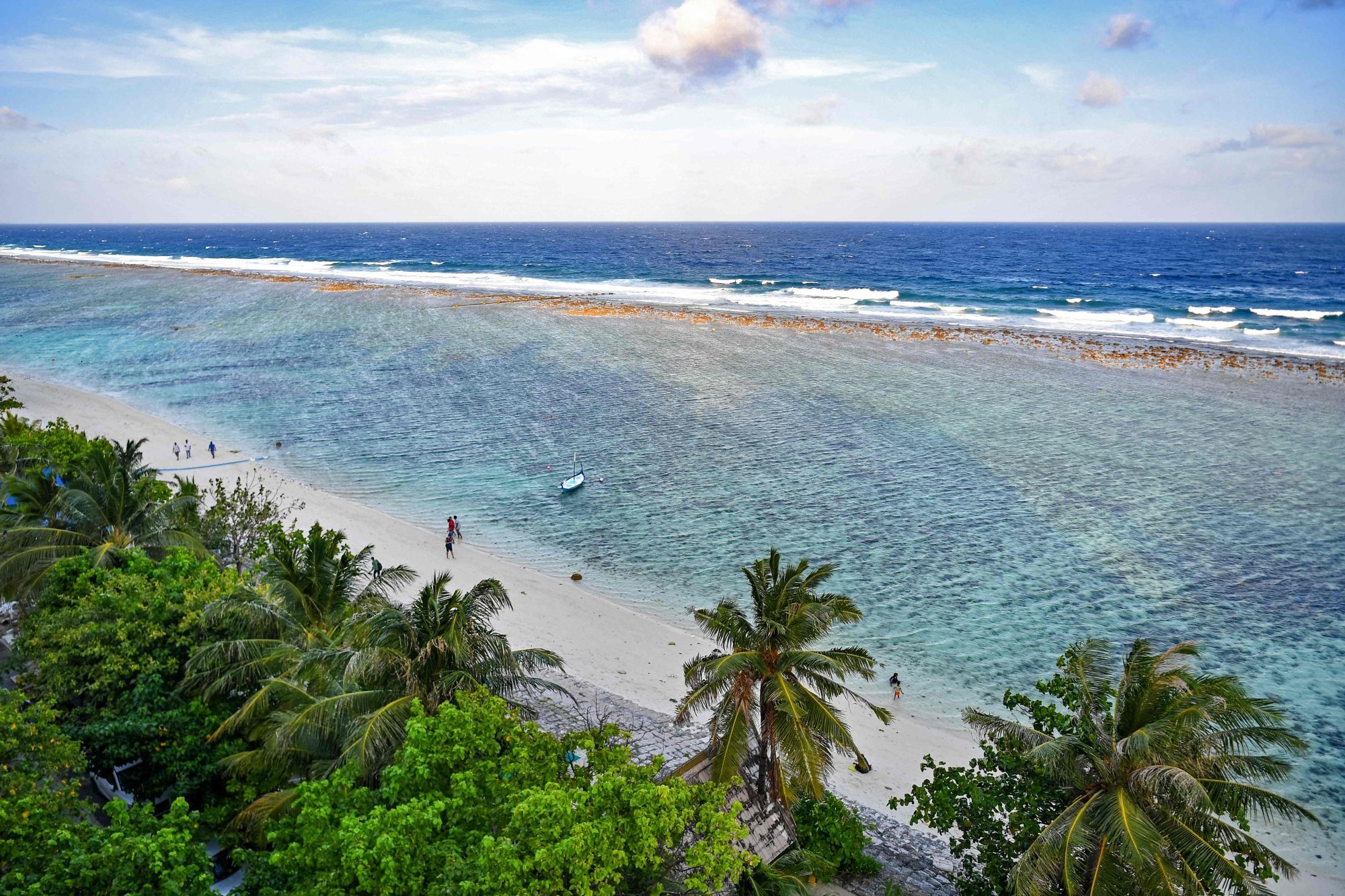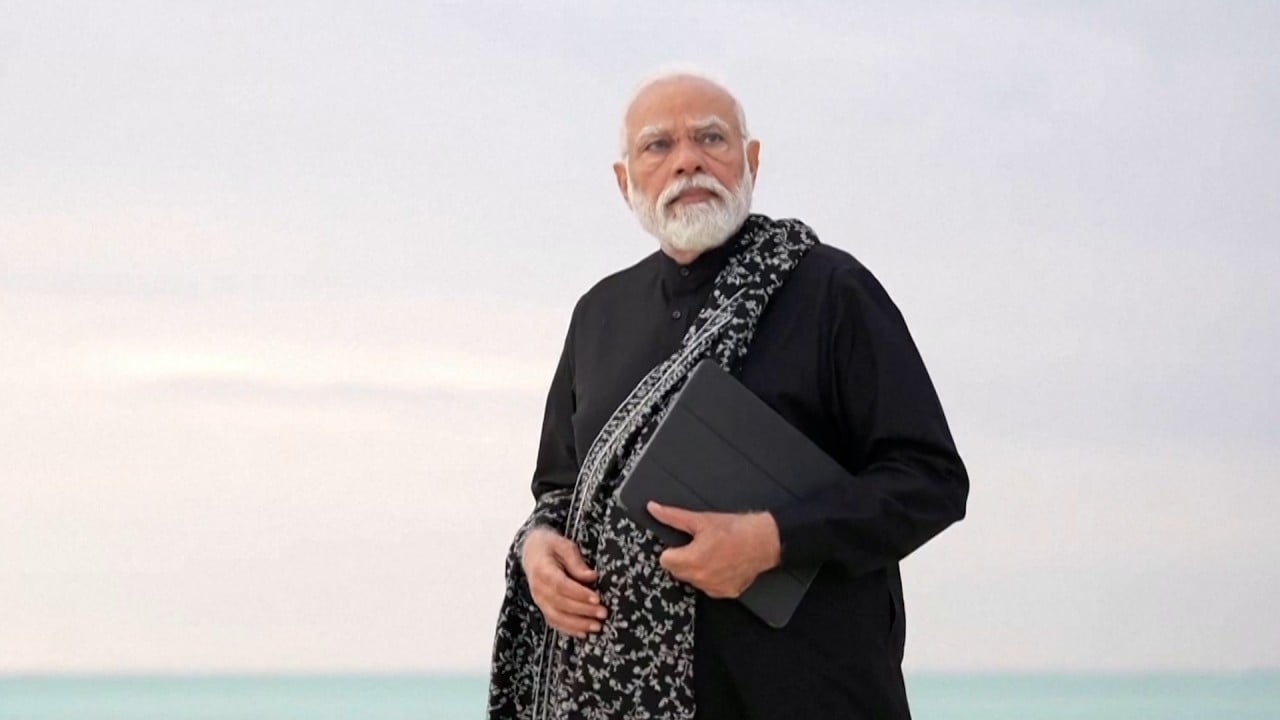India-Maldives row escalates with troop removal order, as Male continues pivot to Beijing
[ad_1]
“This demand [for withdrawal of troops] has been part of Muizzu’s election campaign,” said Manoj Joshi, a distinguished fellow at the Observer Research Foundation. “Certainly, the tourism issue has worsened the diplomatic climate, and maybe they could have worked out some compromise.”
Indians vow to boycott Maldives after Modi called a ‘clown’ over Gaza stance
Indians vow to boycott Maldives after Modi called a ‘clown’ over Gaza stance
The comments of the officials, who have since been suspended over the matter, came in response to a video on the X platform of Modi visiting the Indian islands of Lakshadweep, north of the Maldives, to promote local tourism.
But the social media call by Indian tourists to boycott Maldives has provoked a sharp reaction from the Maldivian president.
“We may be small, but that doesn’t give you the licence to bully us,” Muizzu said at a press conference after his return from Beijing.
Muizzu also said the nation would diversify its imports and buy food from Turkey, medicines from Europe and the US, indicating he wanted the nation to shift its reliance on India despite its proximity.
India-China rivalry
The Maldives have traditionally been an ally of India, given its physical proximity, and its strategic importance has remained one of Delhi’s foreign policy priorities.
But the nation has drifted towards Beijing after Abdulla Yameen, the half-brother of former dictator Maumoon Abdul Gayoom, was elected president in 2013.
“It seems that Muizzu is not interested in toning down the rhetoric around the India-Maldives relationship. If he were serious about moving the relationship, he would have [shared his concerns] in private,” said Harsh Pant, an international-relations professor at King’s College London. “It only vitiates the atmosphere and we know how things have gone with the remarks by the junior Maldivian ministers.”

Pant added that the economic burden of shifting imports away from India to other countries would be huge for the Maldives. “Why would you want your people to do that?” he asked.
The controversy is likely to hurt both nations as a bulk of the island nation’s foreign visitors are from India and its hotels, resorts and other tourism infrastructure employ a number of Indians.
Analysts say the sea lanes around the Maldives are vital for India to defend its southern state of Kerala and could emerge as a potential flashpoint between India and China, whose relations have deteriorated since a border clash three years ago.
Indian luxury tourists flock to Maldives, Dubai as foreign travel restarts
Indian luxury tourists flock to Maldives, Dubai as foreign travel restarts
Another analyst said that the timing of Muizzu’s latest comments showed that he had found a ready backer in China to protect its economy.
“I think he has found a guarantee to fall upon to secure Maldives’ economy. By using the anti-India campaign, he gains more domestically and he has now seen that China is ready to invest more money and that is prompting him to step up his rhetoric,” said Aditya Gowdara Shivamurthy, associate fellow with the Delhi-based Observer Research Foundation’s Strategic Studies Programme.
Indian officials concurred that the dust had to settle down over the recent statements before a meaningful diplomatic rapprochement would be possible.
“I don’t think we should get over-concerned. India has to show some patience and allow diplomacy to play its role. We have the overwhelming asset of geographical proximity and also culture,” said Joshi, highlighting that India had come to the Maldives’ aid several times in the past, including when there was a water crisis in the island in 2014 when a water treatment plant broke down.
[ad_2]
Source link


